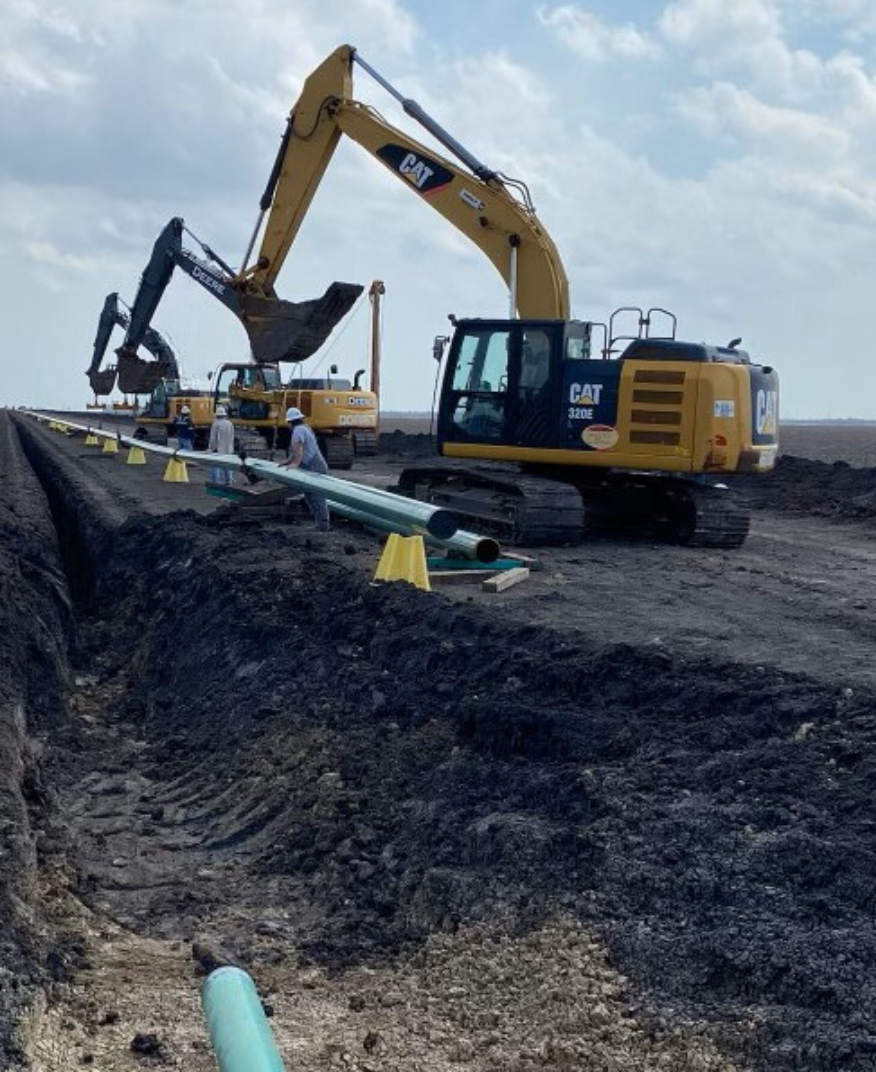About the Pipeline
uninterrupted access
Better Fuel Transportation
Uninterrupted access to fuel supply is critical to improving the reliability of air travel to and from the Austin airport.
Austin is one of the fastest-growing airports in the nation and the largest that relies on daily truck shipments for its fuel. According to Austin Bergstrom International Airport officials, the airport is currently designed to accommodate approximately 15 million annual passengers. Last year the airport served more than 21 million passengers. The city of Austin’s master plan previously projected the airport would reach 30 million annual passengers by 2037; however, it is now projected to reach that by 2027.
The current just-in-time, truck-dependent fuel delivery system has been prone to reliability issues, which affect airport operations. This can cause airlines to require additional onboard fuel when serving the Austin market and impact passenger service. Since 2019, there have been numerous fuel shortage alerts at the airport impacting operations.
A pipeline will enable the airport to meet current demand and projected growth into the future. The pipeline will eliminate the need for daily fuel tanker trucks and provide a safer and more reliable method of delivering the airport the fuel it needs every day.
Pipelines are critical infrastructure that are vital to keeping supply chains and our economy moving. Pipelines are used throughout the United States to ensure homes and businesses have reliable access to the energy resources people need.

Pipeline Safety
Monitored 24 hours a day, modern pipelines are the most commonly used and safest method of transportation for fuel, according to the U.S. Department of Transportation.

minimizing environmental impact
Construction Methods
Modern pipelines are designed and constructed in a way that minimizes environmental impacts. Utilizing certified steel pipe that meets or exceeds federal quality regulations, pipe segments are welded together end to end and are x-rayed to ensure no defects are present. Horizontal Directional Drilling (HDD) allows pipelines to be buried deep underneath major waterways to prevent the lines from coming into close contact with water resources. The BATX Pipeline will only commence operation once it passes a pre-operation test and demonstrates that it is problem free and can operate safely.
Privately Funded Operator
About Flint Hills Resources
Flint Hills Resources is a leading refining and pipeline company with operations built on more than six decades of experience. They have reliably supplied Austin’s fuel for over three decades and currently serves as the primary supplier of jet fuel to Austin’s airport.
Flint Hills Resources refineries produce the fuels people in Austin and the Central Texas region depend on every day, with fuel derived primarily from Eagle Ford crude oil. They operate two refineries in Corpus Christi, TX, with a combined crude oil processing capacity of more than 350,000 barrels per day.
contact us
Have Questions?
Protecting people, the environment, and property are Flint Hills Resources’ top priorities, especially in emergencies.
- Single 10-inch Pipeline
- Monitored 24 hours a day, 7 days a week
- Originating in Bastrop, TX


